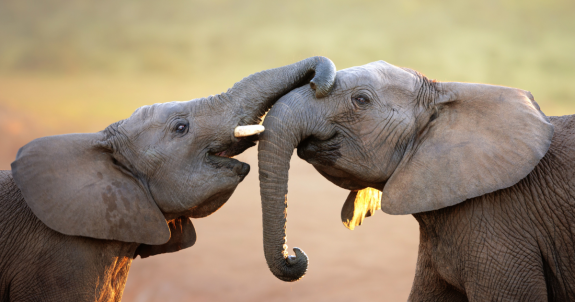An important bill seeking to ban most captivity and breeding of great apes and elephants in Canada passed the Standing Senate Committee on Legal and Constitutional Affairs, and will soon move on to the House of Commons!
On Tuesday, June 18, Bill S-15 successfully passed committee study, and will soon reach its final vote in the Senate before hopefully progressing to the House of Commons. In the House of Commons, Animal Justice will continue to push for the addition of big cats to the bill, including lions, tigers, cheetahs, and leopards. These majestic animals must be protected from lives of suffering in shoddy facilities and private collections across the country.
Key Amendments Made to Bill S-15
After a bill is considered at committee, a report may include amendments. Key amendments made to Bill S-15 following advocacy by Animal Justice and other groups include:
- Noah Clause: This amendment allows the federal cabinet to designate additional wild species for protection under the Act in the future without the need for a new bill.
- Ban on Elephant Rides: A proposed ban on elephant rides has been added.
- Justifications for Captivity: To further restrict permits for keeping these animals in captivity, amendments clarify that any permits issued for “scientific research” must be in furtherance of conservation purposes.
- Sentencing: An amendment authorizing judicial relocations, with costs to the offender, of animals kept or bred illegally, or used in performances for entertainment.
This bill builds on Canada’s ban on the captivity of whales and dolphins, which Animal Justice helped pass in 2019. It also fulfills a commitment made by the Liberal government following the 2021 election.
Big Cats in Canada
It is estimated that around 4,000 big cats are held captive across Canada in private collections and roadside zoos. These environments fail to meet their physical, psychological, socal, and behavioural needs, causing a lifetime of suffering. Big cats kept in inadequate conditions can suffer physically and psychologically, with many displaying unnatural, repetitive movements called stereotypies—including pacing, rocking back and forth, and circling a cage.
In Canada’s largest-ever zoo exposé investigating nearly all zoos in Ontario, Animal Justice found that most facilities had animals exhibiting these troubling behaviours.
Nationally, there is no legislation that regulates the treatment of animals in zoos. Most provinces have only minimal protections, but in Ontario, the roadside zoo capital of Canada, there are absolutely no provincial restrictions on buying, possessing, or breeding big cats and other exotic animals, other than orcas. Zoos are able to operate without a license, leaving vulnerable animals to suffer.
Like elephants and great apes, big cats have complex social, psychological, physical, and environmental needs that can not be met in captivity. Animal Justice is grateful for the great progress this bill has made, but believes it is essential to maintain pressure and ensure the protection of big cats too.
Join the Animal Justice mailing list to stay up-to-date on ways to push for the protection of big cats.




